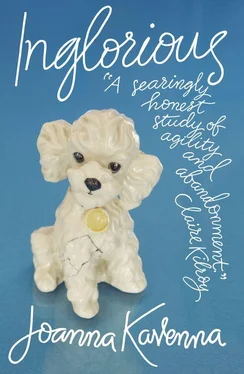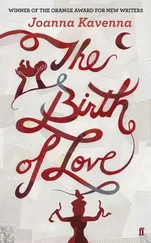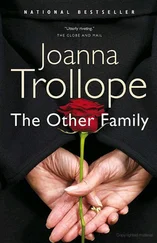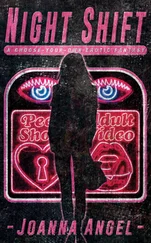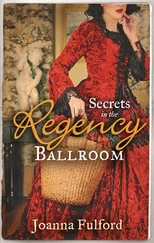‘There is really nothing to say. And now I’d like you to stop talking to me.’
Now Grace — looking resolute, really determined to settle it — drank down her sherry. She set down the glass and put both her hands on Rosa’s arm. That was uncomfortable and Rosa moved away.
‘Rosa, come on. Don’t you think you’re being unreasonable? What, you didn’t want Liam, so no one is ever allowed to have him?’
‘Have him?’ said Rosa. The script was terrible. She wanted to shoot the writer. Who has produced these gutter-slinging phrases, she wondered? Were they really having this conversation? Was it really they, and not two women at some other party somewhere else entirely? She gathered herself together, she set down the glass of wine which had made her head ache and said ‘Grace, I don’t want to talk to you any more. As this room is too small for me to get as far away from you as I want to, I’m going home.’
‘Why don’t I walk with you to the tube?’ said Grace, with an open gesture that indicated she really thought that might be a good idea, a quick walk together would clear the air, sort everything out, Rosa’s jangling nerves and her failure to accept the justice of the case before her.
‘No,’ said Rosa, firmly. She grabbed her coat, whipping Grace on the cheek with it as she pulled it from under someone’s haunches. Well, it served her right for being so small, thought Rosa. She was overcome by an urge to slap her. But instead, like a slack coward, she slunk down the steps to the street.
Grace had always been a great talker. She liked to discuss everything in depth. She found the mistakes of others mostly funny, and she never really minded if people disliked her. Rosa could imagine how entertaining she had made that encounter, how much she had trimmed and tailored it. ‘Really,’ she said to Judy and Will, ‘she’s completely exaggerating. It’s a trait of hers. It can be really amusing. It makes her anecdotes larger than life. But you can’t rely on her at all. The truth is not her main concern.’
‘But you must have cared,’ said Will. ‘You must have been devastated by their relationship.’
‘No, no, that’s not it at all,’ she said. That sent them nodding away, looking as if they knew her well. Ever she was tempted. She was feeling a rising urge; she wanted to fling the plates across the table, scream at them, tell them it was they who were mad! Surrounded by darkness on every side, rolling coursing night and still they were sanguine! They had to be crazy. Napkin at her mouth, forkful of peas in her hand, she wanted to warn them. Vapour, she was thinking. Yes, she added, that would clarify it. Just say that. Judy and Will, all is vapour. That would surely convince them. So she stayed silent.
‘You’re upset they lied,’ said Judy, with parched understatement. ‘That they hid it from you. But perhaps they were afraid. They saw that you were distraught. You were grieving. They didn’t want to make things worse for you. Of course, they cared about you. But they were in love. It’s very hard, isn’t it?’
‘They’ve been indiscreet,’ said Will.
And they sat there nodding for a while. Silence settled over the table. There were candles burning in silver candlesticks. The tablecloth was white. Still, Rosa couldn’t finish her food, though it was delicious. She caught them glancing at each other. Halfway through the main course she had been diagnosed. It was impossible to tell if they believed her or not, and anyway it hardly mattered. Will kept massaging more food towards her and Rosa thanked him voraciously, with abandon. It was a wonderful meal, a big pile of lamb and vegetables, which Rosa knew was bound to have come from their farm, or someone else’s farm nearby, and she tried to eat. She didn’t have their appetite, but this hardly troubled her. The effort of the table was palpable. After a silence which pulsed around them, becoming acute and uncomfortable, they all started throwing each other bits of information about mutual friends, observations on the state of the nation, sprawling anecdotes. Will and Judy were delicate and practical, ladling food at her, smiling broadly when she told a joke, because now she felt obliged to be jovial, to show them just how rational she was. They both spent a lot of time patting her arm. It bemused her, the arm patting. It began to put her off. Will was patting her arm during the main course, offering her more. Judy patted her, and she couldn’t understand why. Was it an idiom? Did they pat everyone who came, or was she being treated to an intensity of pats, a concentration of reassuring gestures? Were they trying to put her at her ease? Did she seem so ragged to them? Quickly she tried to smile. She said, ‘So really, how are you both?’ She was trying for conviviality. She had her teeth gritted, her fists clenched. Conviviality or death! she thought. Pour encourager les autres.
‘You know how we are,’ said Judy. ‘But tell us more about what you’re doing now, Rosa.’ There she was, preparing for the pat, and Rosa said, quickly, ‘Well, I have a new boyfriend.’ That was to salvage her pride. It didn’t quite work even as she said it, but she was tired of them looking so lovingly towards her.
‘You do?’ said Judy, quite beaming with pride. ‘You do? Rosa!’ and she delivered another pat, but this time it lingered in enquiry. ‘Tell me, tell me everything!’
‘He’s called Andreas. He’s German. Hilariously, he’s twenty-five. He’s an actor.’
‘Twenty-five! Well, how about that!’ said Judy. Will was smiling in an avuncular way.
‘A real whipper-snapper,’ he said.
She laughed through her drunkenness and said, ‘Oh yes, he’s great. So young and vital and optimistic. He’s currently in a West End play.’ That sounded nervous, so she stopped.
‘What’s his name?’ said Will.
‘Will, you heard, he’s called Andreas. Rosa told us,’ said Judy, in a mock admonitory tone.
‘No, no, his full name.’
‘Oh, he’s not famous,’ said Rosa.
‘Go on, tell us. Or is it one of those liaisons where you don’t know each other’s full names. Each time you play a different part? Meet in disguise?’ said Judy, smiling broadly. Rosa was glad that she was entertaining them. ‘Oh, no, he’s called Andreas Beck. But you won’t find him on the credits of a film. Not yet.’
‘But soon, soon,’ said Judy. ‘I can picture him — is he very handsom? Blond? Gorgeous and slightly cruel blue eyes?’
‘No,’ said Rosa. ‘He’s not like that at all.’
‘Judy, you’re not being very serious. This is, after all, the new love of Rosa’s life,’ said Will, and now Rosa felt her arm once more caressed by a benevolent hand.
‘Rosa,’ said Judy, ‘I’m so sorry. I really am being disgraceful. Of course, I’m trivialising it. I’m so sorry. I’m just thrilled for you.’
‘It’s fine,’ said Rosa. ‘I understand the spirit of your questions. He’s not blond or blue-eyed. But I suppose you would say he is handsome. I find him so.’ That sounded pompous, so she said, ‘Anyway, most people at twenty-five have that lustre of youth.’
‘God, twenty-five, I can hardly remember it. Do you find he keeps saying worrying things about never having heard of The Cure, or never having watched Withnail and I , or that sort of thing?’ said Judy.
‘He claimed for a while only to listen to jazz.’
‘Jazz, oh he’s that sort of kid,’ said Will, knowingly. ‘You know, arty.’
‘Well, actors, they’re a pretty arty bunch,’ said Rosa.
‘I think he sounds lovely,’ said Judy, though Rosa had hardly described him at all.
She nodded at the kindness. ‘Will and Judy,’ she said, because she really was drunk now. ‘I want you both to know that my attraction to Andreas is not quite merely physical, as I imagine you are both assuming.’ She saw them denying it with short sharp nods of their heads, but she continued anyway. ‘Yes, he is a marvellous lover. Really, a virtuoso. But you don’t want to know that, I imagine. Anyway, that’s not it. It’s something else, something about his naivety — well, that’s unfair, perhaps patronising, but essentially he represents the unthinkingness of youth, its lack of suffering, its blissful ignorance of the worst elements of life, the way in which the young live naturally, natively, they are happy in their young bodies and live without a sense of easeful death coming to snuff them out, or some of them do, perhaps it’s that. I’ve analysed it enough, and it may be nothing more than the fact that I like his musky smell and the touch of his hands. But I think it’s the aforementioned … well, whatever I was saying. He is free of foreboding. Foolishly, of course, but I’m not going to shatter his idyll. It’ll get shattered anyway.’
Читать дальше
